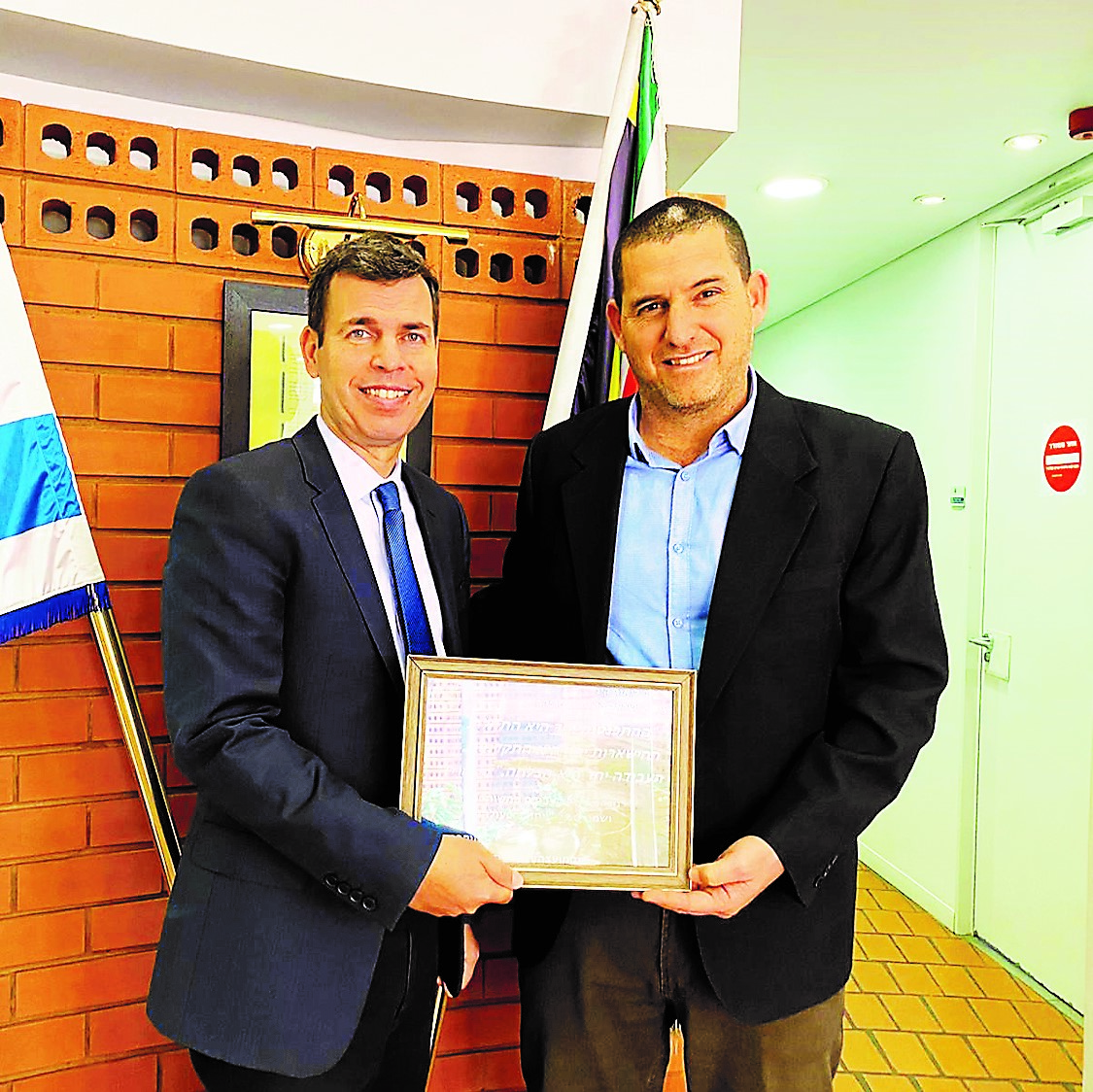
SA

Thriving diaspora communities critical to give true picture of Israel
TALI FEINBERG
“It’s important to focus on the truth, and to encourage South Africans to visit Israel, to see it for themselves,” said Asif Izak, the head of Israel’s Hof HaCarmel Regional Council, on a recent trip to South Africa. “You aren’t alone – keep going.”
The politician says he understands that diaspora communities might feel alone in the battle against the Boycott, Divestment, Sanctions (BDS) movement, which is why he prioritised a visit to South Africa. He arranged the visit along with Habonim Dror Olami (World Habonim), and the South African Zionist Federation (SAZF). He was welcomed by Israeli Ambassador Lior Keinan in Pretoria before heading to Cape Town.
Izak believes we should encourage South African youth who are not Jewish to visit Israel, and he would recommend exploration of the Hof HaCarmel region. “Let them come and see what Israel is really all about,” he says. This would go a long way to help South African pupils make informed choices when they hear anti-Israel rhetoric.
Of his visit to South Africa, he says, “My main aim is to build bridges.” For example, when visiting United Herzlia Schools, he facilitated an online interaction between pupils from his region and in Cape Town, allowing them to study and engage with each other in real time.
Youth from this part of Israel may also be brought to Habonim machaneh (camp) at the end of the year. “There is nothing like interacting with Israelis your own age to get an understanding of Israel,” says the SAZF Cape Council’s Tamar Lazarus, who was hosting Izak in Cape Town. “It’s a win-win situation,” says Izak. Though he is working with Habonim on this project, he is open to joining forces with any other youth movement or organisation in the community.
His role is similar to that of the premier of a province, and the region he oversees stretches across 15 miles (24km) of Israel’s northern Mediterranean coastal plain from Tirat HaCarmel (just south of Haifa) down to Caesarea and slightly inland. It includes eight kibbutzim, ten moshavim, and two major towns. When the south of Israel is attacked, these kibbutzim, villages, and towns open their homes to Israelis fleeing the rockets.
“We’ve got an important story to tell. There is a huge potential in this part of Israel,” says Izak. When most tourists visit the Hof HaCarmel area, they may stop in Caesarea before moving on to the bright lights of Tel Aviv or Jerusalem. But Izak wants to change all that, showing tourists and Israelis alike just what this mountainous, Mediterranean coastline has to offer.
“We joke that tourists only stop in Caesarea, and then they don’t stop again – not even for a bathroom break!” he laughs. But his eyes light up as he describes the natural beauty of the region, which farms wine, olive oil, and an abundance of fruit. It’s home to the picturesque Mount Carmel and Mediterranean beaches.
There is high-quality education, including a focus on children with special needs, diverse communities, and a peaceful life. “In fact, it’s very much like Cape Town,” says Izak. All of these factors make it an appealing option for South African olim (emigres) and tourists, but for most, it is “not on their radar”.
This is because the region hasn’t been presented in a unified way, and publicised enough, says Izak. His vision is to make it feel like one holistic community, as opposed to scattered villages, towns, and settlements. In turn, he hopes visitors will put this “secret” part of the country on their agenda.
Familiar landmarks include the historic town of Atlit, Caesarea for its archaeology, and the Ma’agan Michael kibbutz. Lesser-known attractions include Druze villages, nature reserves, forests, hiking, horse riding, cuisine, adventure parks, public gardens, the Ein Hod Artist’s colony, and the Nisco Museum of Mechanical Music, among other sites. Ultimately, the region deserves extensive exploration, and Izak hopes to encourage this by working with other local leaders to establish a tourist trail similar to the Cape’s wine route or KwaZulu-Natal’s Midlands Meander.
Hof HaCarmel is a centre of agriculture, water conservation, and drought management, and the region is open to sharing this expertise. On his trip to SA, Izak met representatives from the University of Cape Town, African Christian Democratic Party, the agriculture and tourism sectors, and the South African Jewish Maritime League to strengthen ties and potential partnerships.
While this part of Israel has diverse communities ranging from Orthodox Jews to Arab Israelis, it rarely experiences conflict, and can be held up as a case study for anyone interested in conflict resolution and community building. “We work to connect people. One way to do this is to get people to volunteer together,” says Izak. “It’s difficult to hate if you get to know each other.”




